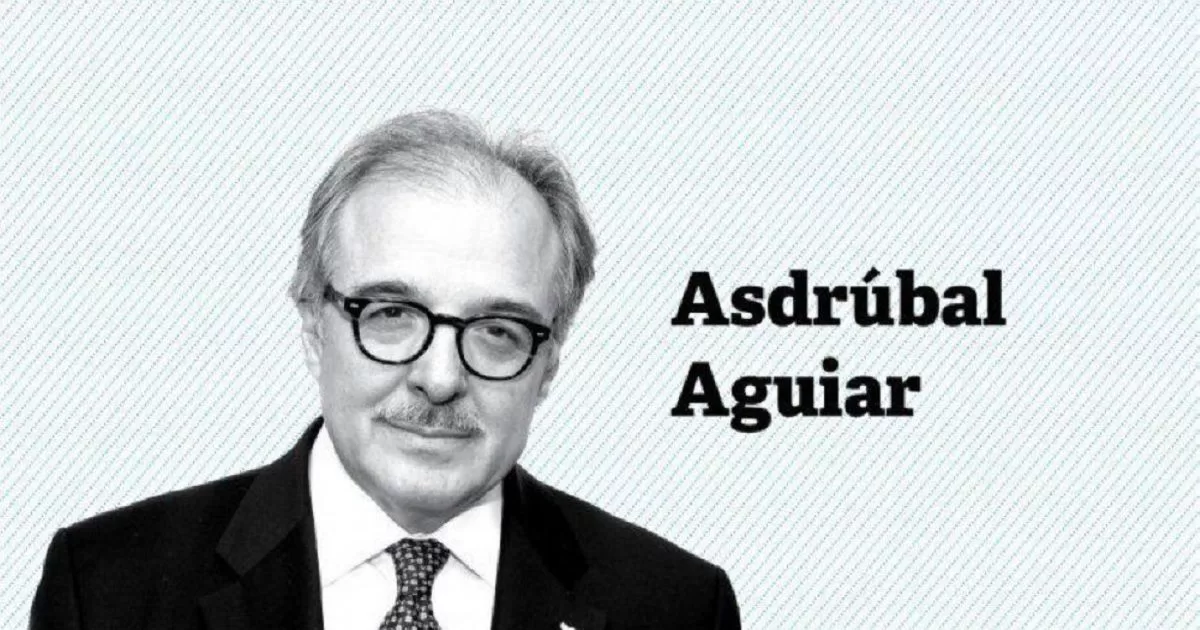The forced disappearance, which was such, even though it was temporary in the case of Rocío San Miguel, and the disappearance, in Chilean territory, of Lieutenant Venezuelan Ronald Ojeda Moreno, scandalously reveal that State terrorism has been reinstated in Latin America.
I’m not exaggerating. Practices that until yesterday we recreated as obscurities of the past are returning for their own sake: what if Nazism or fascism, or the Gulag? soviet, or the dark military dictatorships of the Southern Cone. With them we have nourished academic dissertations or speeches in university classrooms in which we have taught about constitutional or international human rights issues. But some will say that what happened to Rocío is one more in the plethora of violations that are now becoming a habit. Hence Hanna Arendt’s reflection on the banality of evil that we must not forget: “Previously, the suppression of the person and their character as a human being is sought, and subsequently all traces or memories of their very existence are erased. For this reason, (radical) evil transcends death and seeks the disappearance of the victims of the world, thus denying them the disposition of their own death as the closure of the journey of an existence.
The rereading of the Honduran cases with which the inter-American judicial protection of human rights was inaugurated in 1987 revives the teachings on the forced disappearance of people (Velásquez Rodríguez, Frairén Garbi and Solís Corrales, Godínez Cruz). It allows us to visualize that what we see is different, but more perverse. Yesterday, people were made to disappear, they were tortured and murdered, they were kept hidden until confessions were extracted, citing reasons of national security. The dictatorships did not cross-dress and, in the end, like the Chilean dictatorship of Augusto Pinochet or the Argentine dictatorship of Jorge Videla, they assumed their blunders and were condemned for crimes against humanity. Today the same thing is done, but with unspeakable cynicism and cowardice.
The prevailing socialist regimes preach unresolved exclusions, or outstanding social debts, or spent revolutions that change into progressive postulates, or propose dialogues to define what a democracy is or is not or what is or is not the requirement for free elections to exist; and in order to free a missing politician who they have later officially imprisoned, they ask in exchange for the release of a corrupt person or drug trafficker who serves them. Along the way, they demand forms of “transitional justice” for themselves.
In the aforementioned cases, the Court of San José recalled how the Honduran Director of Intelligence denied that the Armed Forces had clandestine prisons, since that was not their modus operandi but, rather, that of the subversive elements who call them “prisons.” from town”; adding that “an intelligence service is not dedicated to physical elimination or disappearances but to obtain information and process it, so that the country’s highest-level decision-making bodies make appropriate resolutions.” That was the motive, the amoral reason justifying such a systematic and selective practice of disappearances by both sectors, for ideological and political or simply futile reasons.
The Court believed that as a “technique intended to produce not only the disappearance itself, momentary or permanent, of certain people, but also a generalized state of anguish, insecurity and fear” in the population, it was relatively recent. From which he concludes that “the phenomenon of disappearances constitutes a complex form of violation of human rights that must be understood and faced in a comprehensive manner”, as it is a crime against Humanity. The OAS, in considering it, also adds that “it is an affront to the conscience of the hemisphere” (AG/RES.666) and described the disappearances as “a cruel and inhuman procedure with the purpose of evading the law, to the detriment of the norms that “guarantee protection against arbitrary detention and the right to security and personal integrity” (AG/RES. 742). “It has frequently involved – adds the Court – the execution of the detainees, in secret and without a trial, followed by the concealment of the corpse in order to erase all material traces of the crime and to ensure impunity for those who committed it, which which means a brutal violation of the right to life”
The mere fact of prolonged isolation and coercive solitary confinement represents, as if that were not enough, cruel and inhuman treatment that harms the psychological and moral integrity of the person and the right of every detainee to treatment that respects their dignity. No activity of the State, in short, can be based on contempt for human dignity, as different regimes do that scary contemporary literature calls “elective authoritarianisms” or those of the 21st century.
San Miguel chills the blood. She is especially scared by what happened to Lieutenant Ojeda Moreno. A 1978 cable published by El País recalls that “the North American Michael Townley, who worked for the Chilean political police (DINA) and allegedly linked to the CIA, has revealed to the FBI details about the attack in Washington on September 21 of 1976 that took the life of Allende’s former minister, the main opponent of the Chilean military regime of Augusto Pinochet, Orlando Letelier. Venezuelan assault groups in southern lands?, one may ask.
That this prince of hell has not appeared before all of us and in theatrical climax, enemy of the human race Sculpted by the ideology and work of the manuals designed for the political police, it only proves that the time for the normalization of evil, when it is difficult to discern between good and evil, has arrived. Not by chance, in Auschwitz, observing the tombstones of the victims of the Holocaust, Benedict XVI challenges his listeners: “May constructive reflection emerge and grow from the place of horror, and may remembering help to resist evil.” And if silence is worth it, let it be an inner cry in everyone: Why do we tolerate this?
(email protected)


